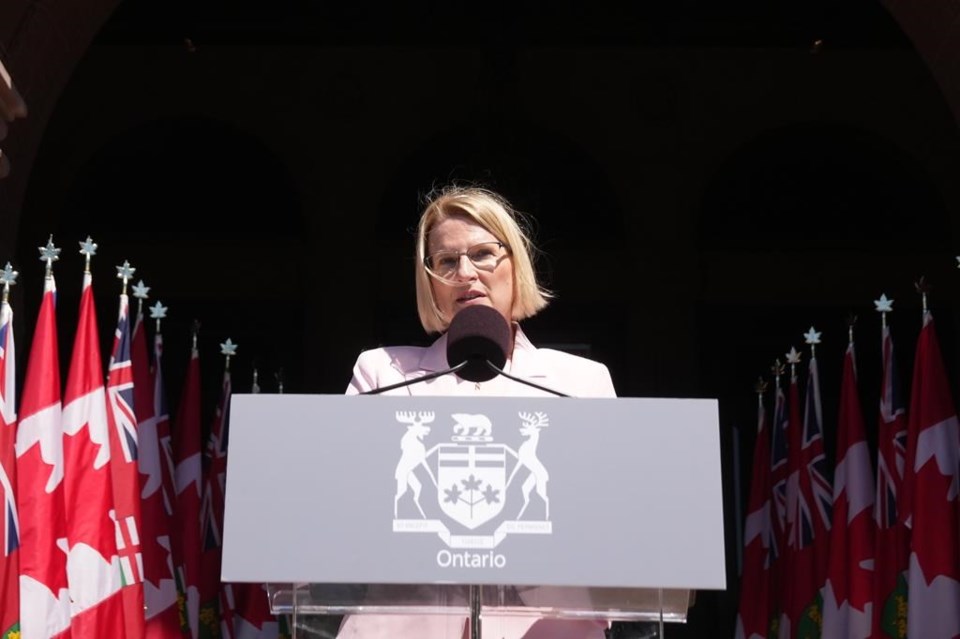TORONTO — Ontario is looking at how to get more internationally trained nurses working in the province in order to ease staffing shortages that have led to temporary emergency room closures, the health minister said Tuesday, but she didn't indicate that she's planning to address nurses' compensation.
Sylvia Jones told The Canadian Press in an interview that the ministry, the health system bureaucracy and hospitals do "everything possible" to try to get shifts covered so emergency departments can operate, but closures still happen at times.
Plans to avoid those situations in the first place include hiring more health-care workers, she said.
"The plan is what we have, frankly, been doing for the last four years, (putting) historic investments into making sure that we have sufficient health-care workers to cover those shifts," Jones said.
Jones touted more than 10,000 health-care workers added since the start of the pandemic. That includes 7,000 nurses and 2,400 personal support workers, a spokesman said.
The government will introduce "additional measures" to boost capacity, she said, specifically mentioning a backlog of internationally trained health workers waiting for certifications.
"We do know that there is a backlog of individuals waiting for those certifications," she said. "How can we assist, as a province, to make sure that whatever upgrades are needed or whatever assessments happen can happen in an expedited manner.?"
A 2020 report from Ontario's fairness commissioner found that 14,633 internationally educated nurses were actively pursuing a licence through the Ontario College of Nurses. That same year, just over 2,000 international applicants became fully registered members.
Ontario's opposition parties have criticized Jones for not holding a news conference to publicly address the staffing crisis since she was sworn in as health minister in June.
John Fraser, set to be named interim Liberal leader, said Tuesday that health staffing shortages are happening all over the world, but "it's not an excuse for people to wash their hands of it."
"That's what it feels like the minister is doing, just simply washing her hands of it," he said.
"I read a statement from the minister last week that the government was working proactively with partners. So I think I might send a dictionary over to the Ministry of Health, to the minister, and maybe the premier's office - proactive actually means you take action in anticipation of something happen."
Jones defended her work, saying her role has been to meet with organizations and individuals in the sector who have solutions, and listen to their feedback.
A main solution that nurses have been advocating for is the repeal of wage restraint legislation known as Bill 124.
But Jones would not discuss it in the interview.
"That is a conversation for another day," she said.
Nursing groups, hospital executives and other health-care professionals and advocates have said that burnout after being on the COVID-19 front lines for more than two years and not being properly compensated have caused people to leave the profession in droves, leading to some hospitals being unable to properly staff emergency departments.
The government has offered nurses a $5,000 "retention bonus," but it is not enough to actually retain nurses, said Cathryn Hoy, president of the Ontario Nurses' Association.
"It is not a wage increase, and that's what they want," she said. "They don't want one-time bonuses."
Hoy said she is not happy to hear Jones say the plan is to do what the government has been doing for the last four years.
"How's that worked out for them?" she said.
"I'm just really concerned to hear that she said we're going to do the same thing for the next four years, because that just tells me we're in bigger trouble."
This report by The Canadian Press was first published Aug. 2, 2022.
Allison Jones, The Canadian Press



